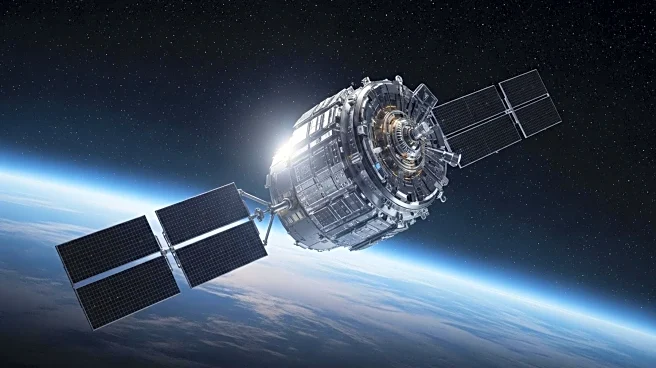What's Happening?
The Federation of American Scientists has recommended the establishment of a standalone agency to promote and regulate the U.S. space industry. This proposed Space Promotion and Regulatory Agency would merge the FAA’s Office of Commercial Space Transportation and the Commerce Department’s Office of Space Commerce. The agency would be tasked with fulfilling U.S. obligations under the Outer Space Treaty, managing space traffic coordination, and rationalizing permitting processes. The agency would also advocate for the U.S. space industry, offering loans and grants for commercial research and development. The regulatory aspect would involve licensing U.S. commercial space activities and managing the Traffic Coordination System for Space.
Why It's Important?
The creation of a dedicated agency for space industry regulation could streamline processes and enhance the U.S.'s ability to compete globally in the space sector. By consolidating existing offices, the agency aims to reduce bureaucratic bottlenecks and improve efficiency in space operations. This move could benefit U.S. companies by providing clearer guidelines and support for commercial space ventures, potentially leading to increased innovation and investment in the industry. The proposal also emphasizes international cooperation, aiming to protect U.S. interests in the face of global regulatory challenges.
What's Next?
If Congress acts on these recommendations, the next steps would involve legislative processes to establish the agency and define its scope and powers. Stakeholders in the space industry, including commercial companies and regulatory bodies, will likely engage in discussions to shape the agency's framework. The agency's formation could lead to new policies and initiatives aimed at bolstering the U.S. space industry's growth and addressing international regulatory concerns.
Beyond the Headlines
The proposal highlights the need for a comprehensive approach to space industry regulation, addressing liability issues and the retrieval of abandoned spacecraft. It also suggests collaboration with the European Union to ensure U.S. companies are not adversely affected by international regulations. These aspects underscore the complex interplay between national interests and global cooperation in space exploration and commercialization.









